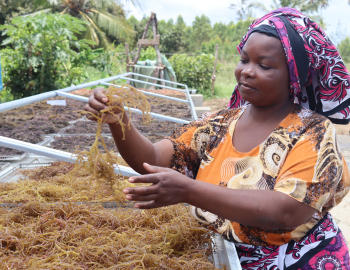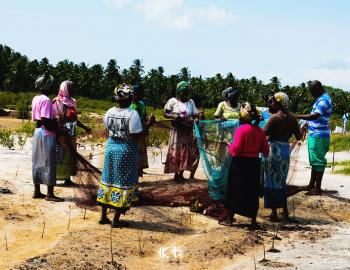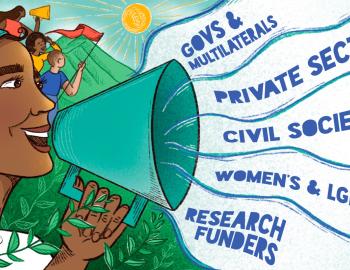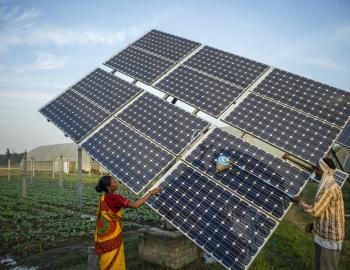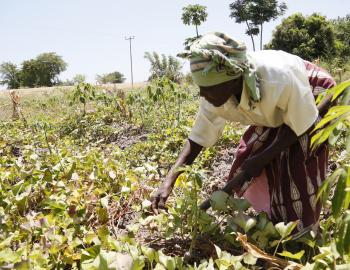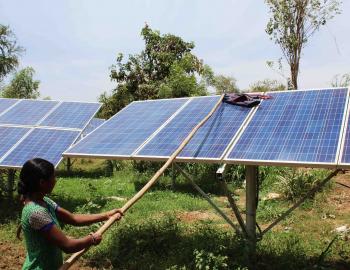Gender Equality in a Low Carbon World (GLOW)
Gender Equality in a Low Carbon World (GLOW)
Context
Events such as Covid-19 and the Ukraine war created economic shocks, especially in Africa and for least developed countries. Meanwhile, communities are increasingly affected by the shocks and stresses of climate change, including extreme weather events. Policies and investments should align with the ambition of the Paris Agreement, committing countries to limiting temperature rise to 2°C and as close as possible to 1.5°C. International financial institutions and governments are pledging funds for economic recovery, stabilisation and avoidance of climate change impacts. However, most governments’ strategies for economic development are still not aligned with a 1.5°C world. And there is a long way to go, to ensure that low-carbon policies and strategies take gender equality into account.
In response, Gender Equality in a Low Carbon World (GLOW) research, together with knowledge translation partners, CDKN, and managing partner, International Development Research Centre (IDRC), worked to address these pressing issues and propose practical solutions to ensure that low-carbon policies and strategies take gender equality into account.
Project objectives
To support research on promising women-led solutions for green economies and climate action.
Project activities
Twelve action research projects were selected following an open, competitive call, based on their relevance to local challenges and clear plans to influence policies and actions.
The research projects spanned 17 countries* across South and Southeast Asia, the Middle East and North Africa, Sub-Saharan Africa and Central and South America. They explored innovations for women’s economic empowerment and climate action in agriculture, forestry, land restoration and tourism. The projects were led by local research experts, who worked hand-in-hand with the people who can implement solutions.
Visit the GLOW website to explore the research projects and their findings in greater depth.
CDKN and ODI ran the GLOW Knowledge Translation Hub, which sought to synthesise knowledge from across the programme, support peer learning among the projects and engage relevant international audiences with the findings.
*The countries were: Bolivia, Cambodia, Cameroon, El Salvador, Guatemala, Guinea, Kenya, Malawi, Nepal, Nicaragua, Palestine, Philippines, Rwanda, Senegal, Tanzania, Uganda and Vietnam.
Project outputs
Key outputs from the project include:
- A research report that reviews the evidence on women's economic empowerment in low-carbon transitions.
- An accompanying policy brief in English, French and Spanish with specific recommendations for government and business leaders on changes they could make to policies and investments.
- A digibook and final report in English, French and Spanish with key findings and recommendations on empowering women in just transitions.
- An animation in English, with French and Spanish subtitles, summarising the GLOW programme's work.
- A journal article on why ecosystem-based adaptation and gender justice go hand in hand, drawing on learning from the GLOW projects.
- A policy brief on the 'gender lens': the approach that low-carbon businesses cannot do without
- Webinar: Empowering women in the green economic recovery from Covid-19.
- Webinar: National leadership and feminist networks Part 1: Charlotte Remteng
- Webinar: National leadership and feminist networks Part 2: Marina Yamaoka
- Webinar: Pre-COP29 briefing on women's empowerment in the context of climate ambition (Part 1)
- Webinar: Pre-COP29 briefing on women's empowerment in the context of climate ambition (Part 2)
Managing partner: International Development Research Centre (IDRC)


